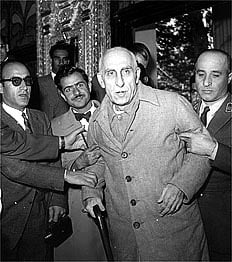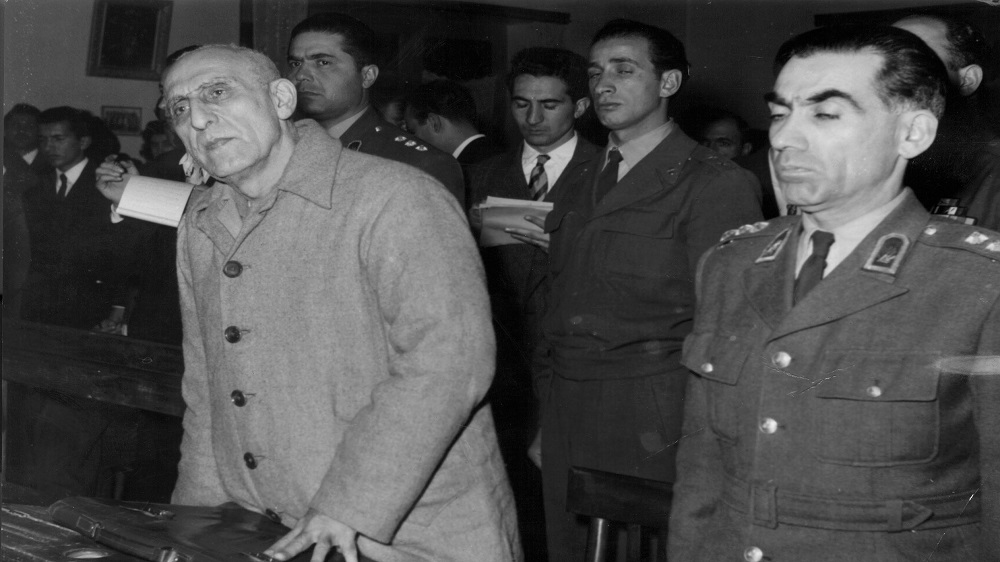UK’s Lead Role in 1953 Iran Coup d’etat Exposed
Unearthed interview of former British spy sheds light on how the overthrow of PM Mohammed Mossadegh unfolded.

A recently discovered transcript of an interview with a British intelligence officer who played a leading role in the 1953 coup that restored powers to the shah of Iran claims that Britain was the driving force behind the overthrow of Iranian Prime Minister Mohammed Mossadegh.
On the anniversary of the UK-US-led coup d’etat that removed Iran’s democratically elected leader, an interview with Norman Darbyshire – head of the MI6 spy agency’s “Persia” station in Cyprus at the time – was published.
In his account, Darbyshire said Britain had convinced the US to take part in the coup.
Darbyshire’s comments came from an interview with the creators of an episode of 1985 British series End of Empire. His interview was not used directly in the programme, as he did not want to appear on camera.
The transcript, long forgotten, was recently unearthed during the making of a new documentary called Coup 53, scheduled for release on Wednesday, the 67th anniversary of the coup.
Darbyshire died in 1993. The transcript of his interview was published on Monday by the National Security Archive at George Washington University in the United States.
“Even though it has been an open secret for decades, the UK government has not officially admitted its fundamental role in the coup. Finding the Darbyshire transcript is like finding the smoking gun. It is a historic discovery,” Taghi Amirani, the director of Coup 53, was quoted by the Guardian newspaper as saying.
The coup – known as Operation Ajax – eventually succeeded on August 19, 1953. Mossadegh was tried and kept under house arrest until his death 14 years later.
Shah Mohammad Reza Pahlavi appointed Mossadegh as prime minister in 1951 after he won the backing of the Iranian parliament.
MI6 and the US Central Intelligence Agency then convinced the shah to back a coup against Mossadegh in 1953.
“The plan would have involved seizure of key points in the city by what units we thought were loyal to the shah … seizure of the radio station etc … The classical plan,” Darbyshire said.
Mossadegh had nationalised the Anglo-Iranian Oil Company and MI6 believed Soviet-backed communists would eventually take over the government, according to Darbyshire.
“I really do believe it, because Mossadegh was a fairly weak character,” the spy said. “[O]nce you get highly trained members of the communist party in, it doesn’t take long. We didn’t share the American view that he was acting as a bulwark against communism … We thought he would be pushed by the communists in the long run,” said Darbyshire.
“Iranians truly believe that if it weren’t for the CIA, the shah would never have been brought to power,” former CIA operative Robert Baer told Al Jazeera. “And they believe that the CIA continues to operate as an evil force in their country.
“The coup was the beginning of a sequence of tragedies that dog the US and its allies in the Middle East today.”
Note to readers: please click the share buttons above or below. Forward this article to your email lists. Crosspost on your blog site, internet forums. etc.


